Today is Earth Day, an annual global event which champions the protection of the environment. The first Earth Day took place in 1970. It signalled a change of consciousness on an international scale, with people becoming more aware of environmental issues.
Sustainability within the wine industry has long been the subject of debate for several reasons. In hotter climates irrigation is often needed for growing vines in optimum conditions, which can lead to a strain on local resources. This strain is becoming particularly apparent in California, where a water shortage warning has been issued. The carbon footprint for bottling and shipping glass bottles across the world is astronomical. The average carbon footprint of a bottle of wine is 1.04kg of carbon dioxide. That’s compared to 300g for a pint of beer and 0.14g for a glass of tap water!
Many winemakers have moved to organic and biodynamic practices in their winemaking. You can read more about the differences here, but essentially it equates to eliminating the use of pesticides and chemical fertilisers in viticulture, which is better for the environment.
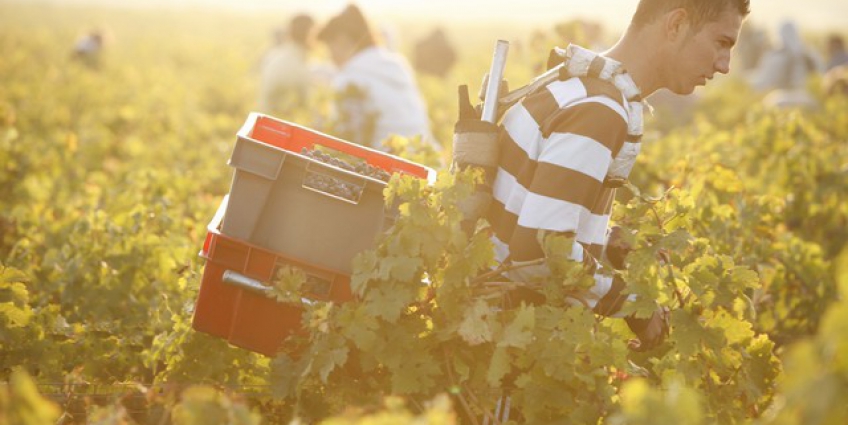
We decided to take the opportunity to speak to some industry insiders to get their views on sustainability…
Sao del Coster is a biodynamic winery based in Priorat, near Barcelona. Xavier Barrachina explains why it is important to them:
“Biodynamics is a way of understanding the relationship of our winery with our region, nature, and the environment. We have chosen to work biodynamically because we think it’s the best way to express the characteristics of our terroir in every bottle. Working intensely for the entire year so our vineyards are in the best conditions possible, and only with natural products, we ensure the excellent quality of our grapes. The most important thing for us is the “how” but above all, the final result so that the wines speak for themselves and communicate in the most honest way possible, the reality of Priorat and how we understand it.”
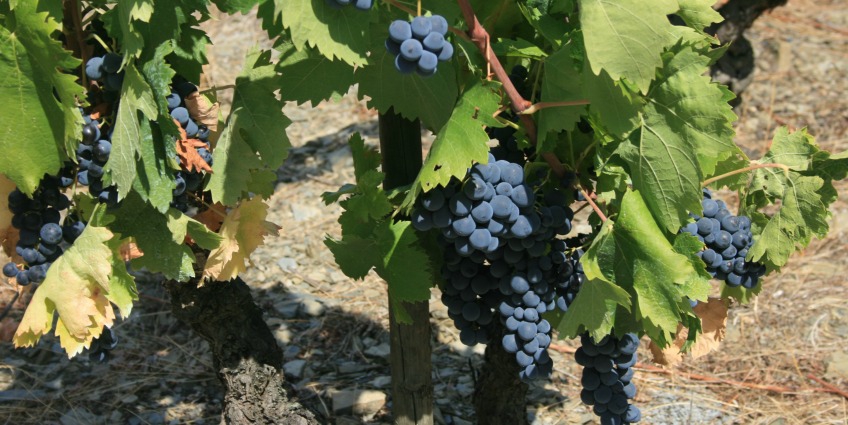
Chêne Bleu is a wine producer based in Provence, France. Their head wine-maker Jean-Louis Gallucci explains why they are making the move to become organic:
“For us sustainability is not only about making organic wines; our engagement goes way beyond that. Our natural landscape is so particular that it demands more than the standard vision of sustainability. In exchange it offers up a treasure-trove of priceless natural riches, from exciting endemic yeasts to multi-layered wildflower aromas to extravagant biodiversity, including endangered species, a veritable ‘Jurassic Park’ of microorganisms…We have implemented many measures to allow our environment to thrive, it would be vandalism against Mother Nature to do otherwise.”
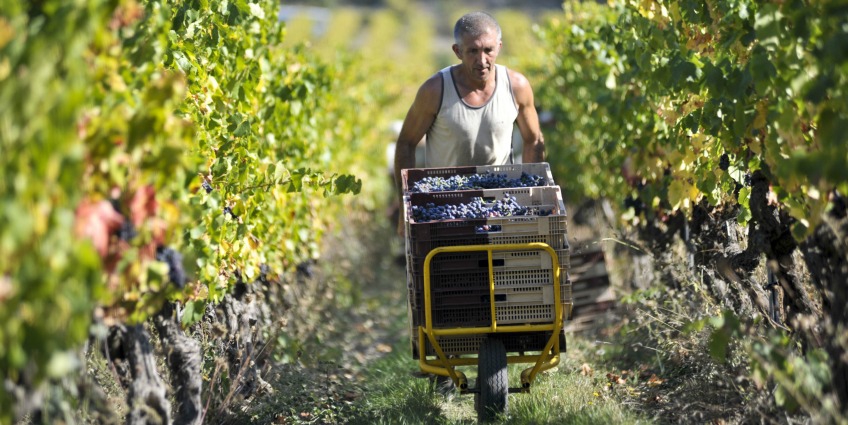
Barone Pizzini, a winemaker from Franciacorta, Italy answers a few questions on the importance of organic viticulture…
Did organic farming change the way your wine is perceived by the consumer?
Yes, consumers appreciate organic wine, they like that we don’t use chemical pesticides and they think that wine would be of an higher quality. This perception was not the same some years ago. When we started organic farming in 1998, people thought that the quality of organic wine was not as good.
Do you think that in the future we will see more organic wineries in Italy?
More and more, we are sure. Today in Franciacorta about a third of plantings are organic.
What are the main challenges to producing organic wines?
We have to know nature very well. Observation is very important. We think that to obtain great fruits we have to respect and know nature, we can’t control it.
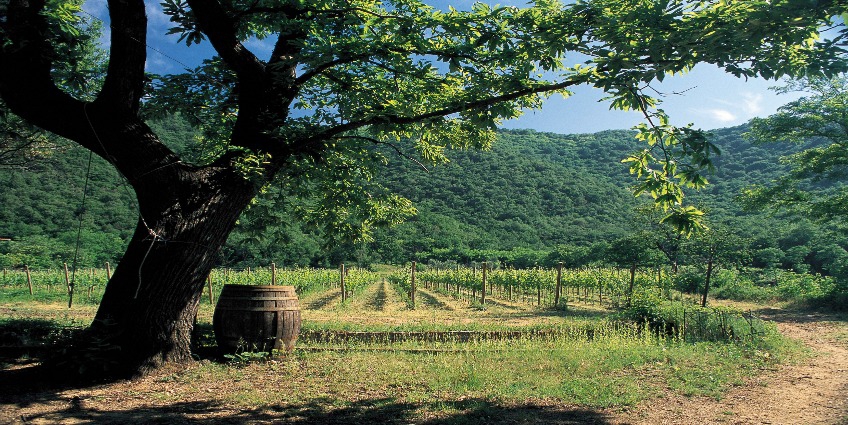
We also spoke to natural wines expert, Isabelle Legeron MW to find out more about sustainability in the industry…
Why is sustainability important in the wine industry?
Drinking wine is not essential for feeding the population, it’s a luxury item. It’s a big responsibility to ensure that we are farming and producing wines that are in line with looking after the environment. The wine industry is one of the most polluted industries; grapes are farmed using one of the worst chemicals.
What do you think is the cause for the growing number of winemakers switching to organic and biodynamic practises?
The wine industry seems to be following a similar pattern to what is happening in the food industry. People are more and more aware of the issues and asking questions. During the 1970s, there was a big increase in the use of synthetic chemicals in agriculture. In more recent times, the realisation of how harmful these products can be and the negative effects of excessive spraying have come to light, not just for the environment, but also for the people working in the vineyards.
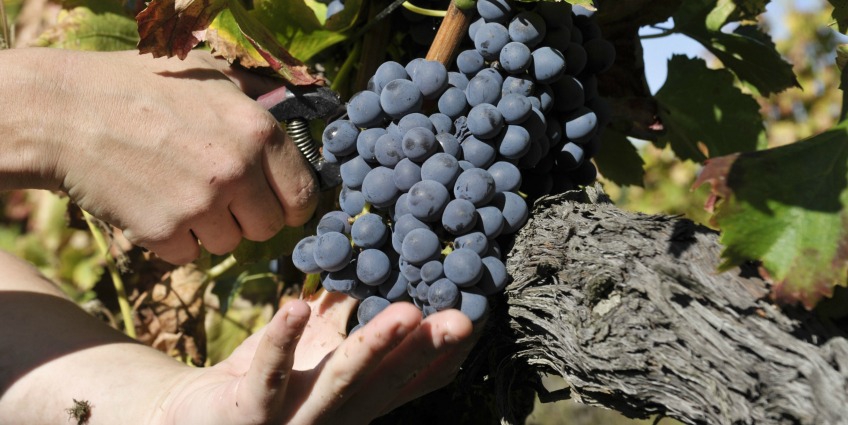
What are the pros and cons of organic and biodynamic winemaking?
The disadvantage is that from a production perspective you lose volume. Farming organically means you will lose some of the crop, which means less yield. This can be challenging from an economic perspective, however the fact that it is produced organically adds more value to the product and means that some of that cost can be passed onto the consumer. It requires more expertise to work organically but the upside is that you produce products that are better for both the environment and the consumer. Part of the satisfaction for the winemaker is that you bring back the biodiversity. If you walk through a vineyard that has been farmed organically or biodynamically, it is full of life. If you are prepared to go through the extra work involved, the upsides can be tremendous.
What do you think is being done to reduce the carbon footprint in the industry?
There are lots of great initiatives in the industry, for example the move towards bag in boxes and keg wines. Wines transported in larger volumes can have a big impact on reducing the carbon footprint. There is the misconception that bottling wines in heavier bottles indicated premium quality. The consumer is moving away from that mentality however there needs to be a bigger effort from producers to move away from these heavy bottles.
Do you think New World producers have been quicker to react to the concept of sustainability in the industry?
They are both working on different issues. If you take irrigation for example, the New World has a higher proportion of irrigated vineyards. With certain Old World regions, winemakers are not allowed to irrigate and for that reason vineyards are planted in conditions that are naturally more suited to viticulture. In the New World, you see more vineyards planted in areas which need heavier intervention, such as irrigation. In France for example, if you are drinking a wine produced locally, that has a positive effect on the carbon footprint. How you approach it is really dependent on the local situation, for example how you ship the wine or whether to use irrigation. I think the wine industry is seriously starting to look at the issues of sustainability as a whole. Over the last 15 years the proportion of organic winemakers has increased dramatically and this only looks set to grow more.
You co-founded the RAW wine fair, which takes place on the 17th & 18th May in London. What is the idea behind it?
The idea behind RAW is to bring together growers who share a similar philosophy in terms of how they farm their vineyards and how they make their wines. It’s an opportunity for them to meet with consumers, and also trade and international buyers. When it first started, RAW was a local fair but it now attracts a number of visitors from all over the world. The main purpose of the fair is to promote transparency in the trade. We produce a catalogue that lists all the ingredients used in the wines, including sulphites. It is a comprehensive guide that can educate consumers, so that they can start asking more questions about how the wine they are drinking has been produced. For example, a lot of big brands use a fish derivative in the winemaking process, but this is often not communicated to the customer. It’s really the only wine fair in the world to promote transparency and list ingredients, and it is one of the largest fairs for organic and biodynamic winemakers in the world.
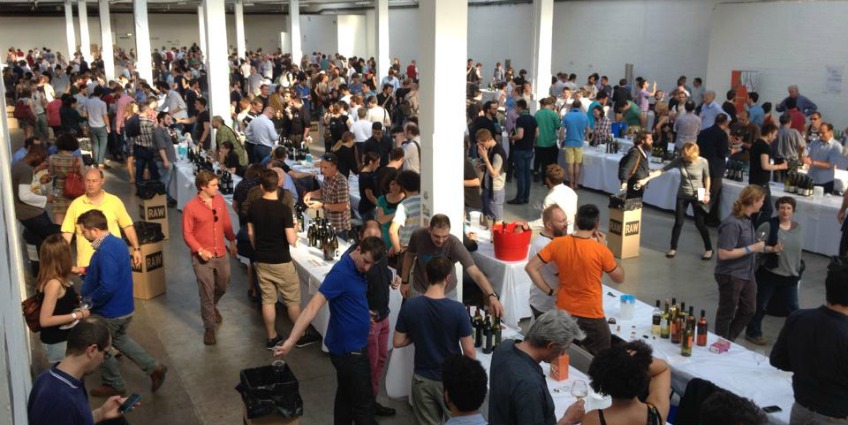
Photo credit: facebook.com/RAWFair
Isabelle Legeron is a Master of Wine, otherwise known as “That Crazy French Woman”. She is a champion for organic and biodynamic winemaking. To book tickets and find out more about the RAW fair, click here. To discover more about natural wines, you can buy her book on the subject, which was recently nominated for a Fortnum & Mason Food & Drink Award.
We have lots of organic and biodynamic wineries that you can visit to learn more, we even have a natural winemaking course in Rome. You can also read all about the best organic and biodynamic wineries to visit here.
Carbon footprint source: http://www.eco2greetings.com/carbonize.html
Title photo: flickr.com/charamelody